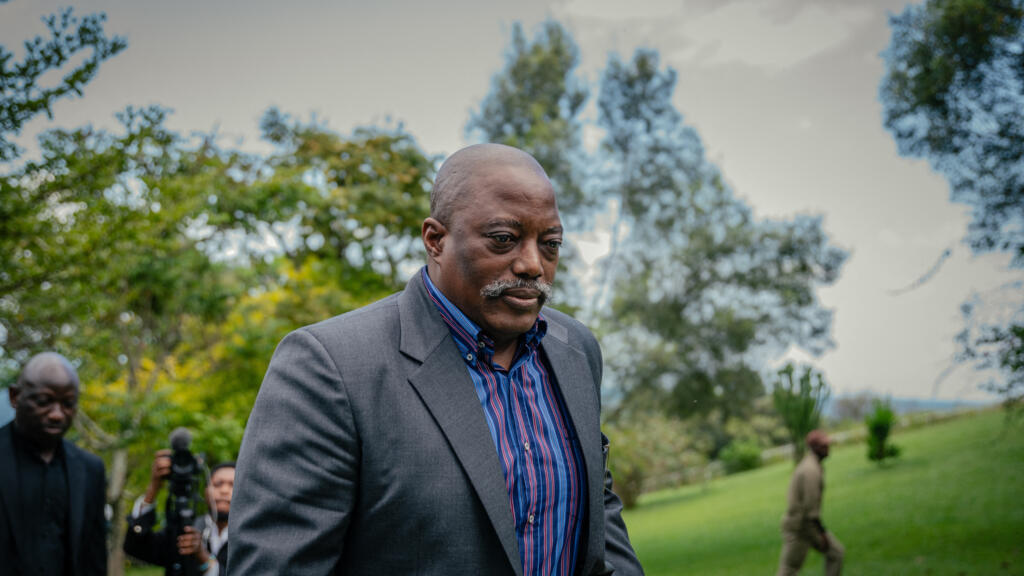Gambiaj.com – (KINSHASA, DR. Congo) – The Democratic Republic of Congo’s (DRC) former president, Joseph Kabila, has been sentenced to death in absentia by the country’s High Military Court on charges of war crimes, treason, and organizing an insurrection.
Kabila, who led the DRC from 2001 to 2019, was found guilty on Tuesday after a months-long trial he did not attend.
The court ruled that the 54-year-old, now in exile for over two years, violated his duty of loyalty and dignity to the Congolese state by allegedly collaborating with the rebel movement M23 and its political arm, the Alliance Fleuve Congo (AFC).
In its ruling, the High Military Court described Kabila as “the head of the AFC/M23 coalition,” accusing him of conspiring with former electoral chief Corneille Nangaa and Rwanda to topple the Congolese government. Judges said the crimes “scandalized millions of Congolese” who had once entrusted him with the presidency for 18 years.
Alongside the death sentence, the court ordered Kabila to pay more than $33 billion in damages to the Congolese state, the provinces of North and South Kivu, and victim support groups.
The verdict marks the first time a Congolese head of state has been convicted by a military tribunal.
Divisive Reactions
Kabila’s political party, the PPRD, immediately denounced the ruling. Its permanent secretary, Emmanuel Ramazani Shadary, dismissed the trial as “a vast joke” and a politically motivated attempt to weaken Kabila’s influence. “Instead of seeking national unity and reconciliation, this trial will only deepen divisions among Congolese,” he said.
Civil parties, who had initially requested a life sentence instead of the death penalty, accepted the decision as a matter of judicial sovereignty. “As professionals, we must bow to the ruling while saluting the Court’s decision,” said lawyer Richard Bondo, representing the state.
Human rights lawyers hailed the trial as historic. “Victims in North and South Kivu now have an identified perpetrator for the suffering they have endured in silence,” said Me Kasongo Mayombo, counsel for several NGOs. “This is the beginning of the end of impunity.”
Political Undercurrents and Conflict in the East
Opposition reactions were mixed. The Ecidé party of Martin Fayulu refrained from directly commenting on the verdict, instead condemning both Kabila and his successor, President Félix Tshisekedi. “They are the two main actors of the electoral holdup of December 31, 2018. Both are accountable to the people,” said Ecidé secretary general Devos Kitoko.
Analysts say the case highlights the fragile balance of justice and politics in a country plagued by decades of conflict. Political scientist Bob Kabamba of the University of Liège argued the ruling was “the continuation of a political process that began years ago.”
The sentencing comes as eastern DRC remains engulfed in violence. The M23, with alleged Rwandan backing, seized Goma in January and Bukavu in February, displacing tens of thousands. The region, rich in minerals, has been a flashpoint of instability for more than 30 years.
Kabila in Exile
Despite his exile, Joseph Kabila continues to present himself as a political force. In past statements, he has insisted on his lifelong commitment to defend the DRC, declaring, “Yesterday in power, today out of power, I remain faithful to that oath.”
From abroad, Kabila has strengthened ties with allies in East and Southern Africa and nurtured networks of exiled collaborators and young militants. His supporters view him as a potential unifier of the opposition against Tshisekedi’s government.
Whether this conviction diminishes or galvanizes his influence remains uncertain. But in Kinshasa, the ruling has already set a precedent: a former president of the DRC now faces the country’s harshest penalty.










